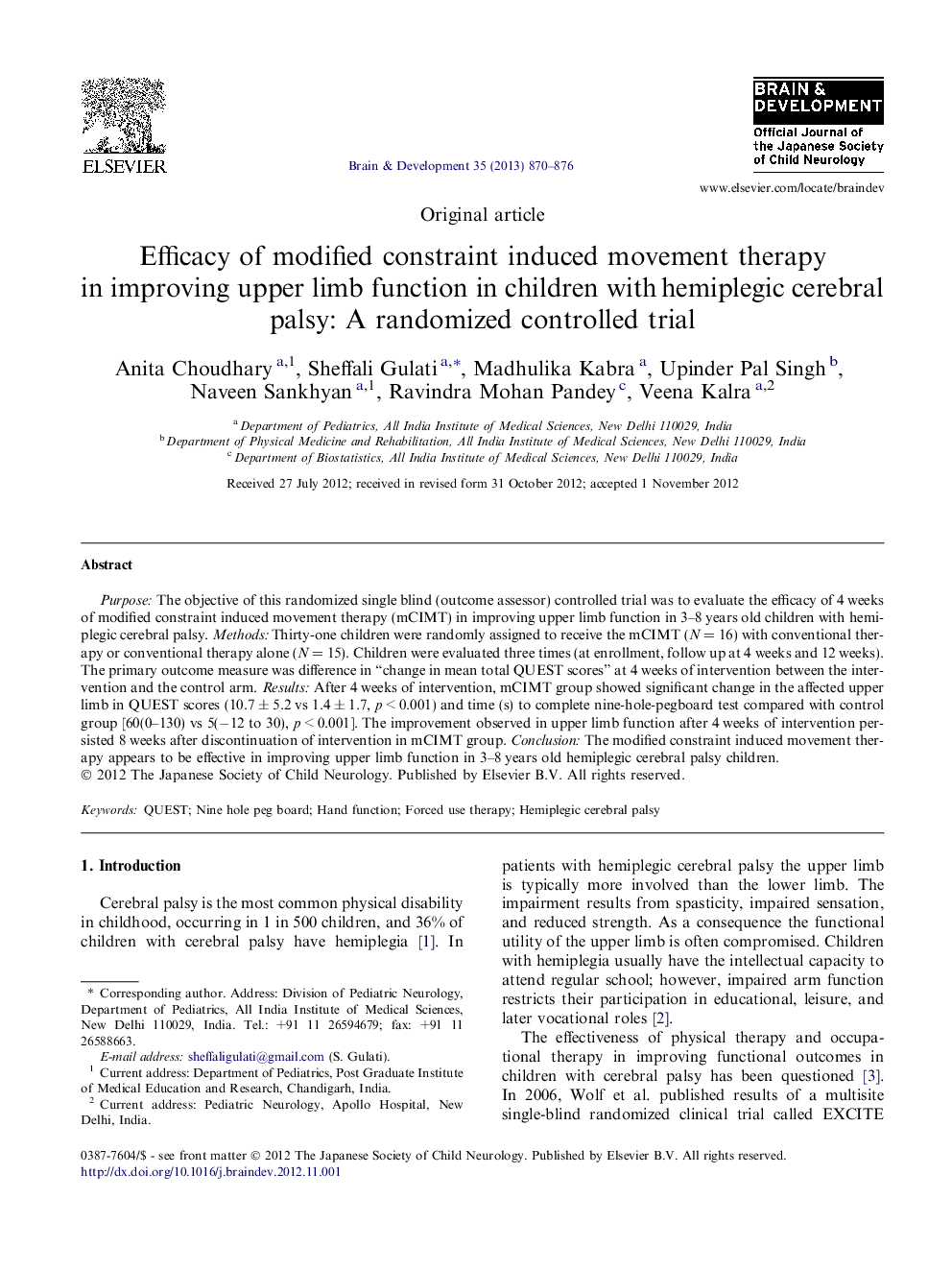| Article ID | Journal | Published Year | Pages | File Type |
|---|---|---|---|---|
| 3037216 | Brain and Development | 2013 | 7 Pages |
Purpose: The objective of this randomized single blind (outcome assessor) controlled trial was to evaluate the efficacy of 4 weeks of modified constraint induced movement therapy (mCIMT) in improving upper limb function in 3–8 years old children with hemiplegic cerebral palsy. Methods: Thirty-one children were randomly assigned to receive the mCIMT (N = 16) with conventional therapy or conventional therapy alone (N = 15). Children were evaluated three times (at enrollment, follow up at 4 weeks and 12 weeks). The primary outcome measure was difference in “change in mean total QUEST scores” at 4 weeks of intervention between the intervention and the control arm. Results: After 4 weeks of intervention, mCIMT group showed significant change in the affected upper limb in QUEST scores (10.7 ± 5.2 vs 1.4 ± 1.7, p < 0.001) and time (s) to complete nine-hole-pegboard test compared with control group [60(0–130) vs 5(−12 to 30), p < 0.001]. The improvement observed in upper limb function after 4 weeks of intervention persisted 8 weeks after discontinuation of intervention in mCIMT group. Conclusion: The modified constraint induced movement therapy appears to be effective in improving upper limb function in 3–8 years old hemiplegic cerebral palsy children.
